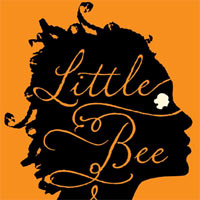Serendip is an independent site partnering with faculty at multiple colleges and universities around the world. Happy exploring!
Precarious and Performative Play Web Paper 3

Orange Alert
Gender Pay In-equality: A Call to Action In Orange Art
Attached are two documents:
Word.doc With pay gap data & reflective writing.
Artistic reintrepretation of possible road signage: photos of 14 different painted caution signs included.
SourceURL:file://localhost/Users/leecwacker/Documents/Senior%20Yr./GENSEX%20CORE%20COURSE/web%20event%203.doc
Lee Wacker
Web-Event 3
Gender Pay In-equality: A Call to Action In Orange Art


[Figure 1] [Figure 2]

The Arc
Although cheesy, the saying “a picture is worth a thousand words” rings true. To express the concept of “right relationships”, I have “curated” an online exhibit of photographs. Although all of the photographs are real, because I have borrowed them from other websites, I have created my own titles for them. Additionally, for some of the photographs, the captions below the titles are not accurate for that specific photograph, but rather are based on the content of the photograph.
Because I am not computer-savvy enough to create a virtual gallery space, I will use my words to help you imagine the exhibition space in which this exhibit would be on display. Imagine a large, open room with light, sandy-colored wood floors and high white walls. There is also an expansive wall of windows allowing for natural sunlight to flood the gallery. The photographs would be 24” by 18” framed inside of a 2” white mat and a 1.5” solid black frame. The titles and captions would be printed on cards and mounted on the wall next to the bottom right-hand corner of the frame.
The Arc
Written on the wall, to be seen as the first thing when entering the exhibit:

"The Ugly Footprint of Africa's Black Gold"

Chris Cleave’s best-selling novel “Little Bee” narrates the entangled lives of two very different women from two very different worlds: one from the safe and peaceful Britain, the other from the oil-torn and secretly brutal Nigeria. Little Bee seeks refuge in Britain after fleeing the violence brewing in her homeland over oil, violence that the government turns a blind eye to. While “Little Bee” is a novel, in a Q&A with Cleave he admits that the story does have a basis in reality, though the details and individuals themselves are fictional. On his website, Cleave invites his readers to “Explore the Issues,” providing links to supplemental material on Nigeria, the oil drilling in the Niger Delta, and refugees and asylum seekers. While the page title is “Explore the Issues,” the URL, in fact, reads “get involved.” It seems that through “Little Bee” Cleave is using a novel, a fictitious voice, to reach out to readers who may not pick up a book on human rights or contemporary global events to inform them of issues that may not directly affect them, but weave into the web of humanity’s entanglement and codependence. What is the relationship between Cleave’s fiction and the reality of the almost 160 million Nigerians and all those connected to them? That is what this essay aims to determine.

The nature of our entangled relationships; can we actually form a right relationship?
I had attempted to create a video paper for this webevent but I encountered a couple of technical difficulties that 1. did not allow me to be a little more creative and 2. made the audio and the visual not match up perfectly. (YouTube...)
But I wanted to include my actual point in case the video wasn't clear. The right relationship that I had tried to build was the relationship surrounding the reproductive health bill. Through my lesson plans, I had the intention to working within the social context of the Philippines (or as I sometimes refer to it, the motherland) to improve sex education and thus, help alleviate the large population growth, lack of resources as well as educate the youth about sex in general. My point (or you could even say the thesis of this paper) is that although I am very connected and "entangled", through my roots, I still find it difficult to be considered as an insider because I still diffract the issues through the lens of someone who has been educated and who grew up in another country. Thus, I question whether or not I really have the right to be giving advice in the first place.
Sorry if it was difficult to watch or follow! I wasn't really so sure about how to fix that problem...





